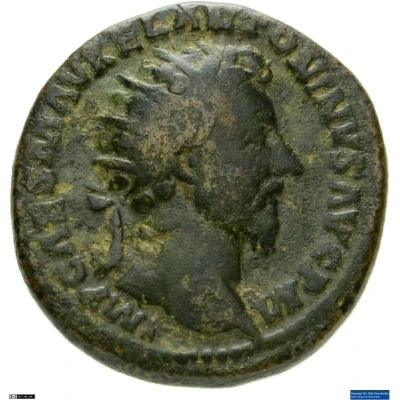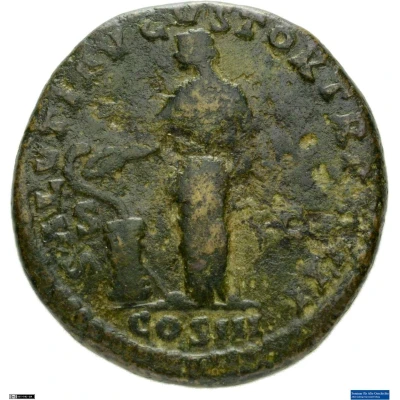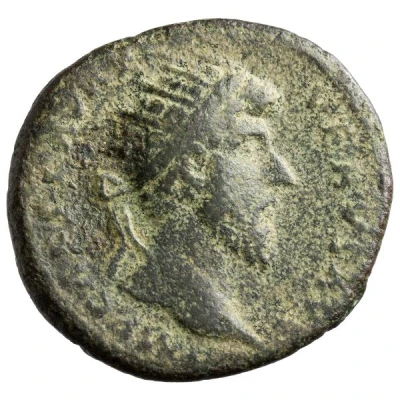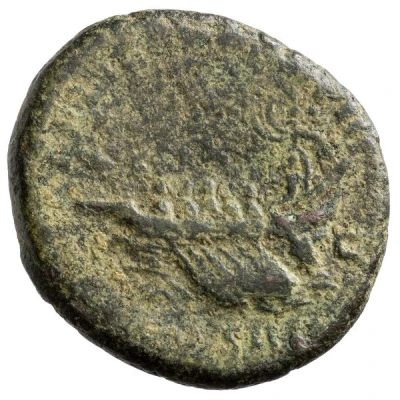


© Münzsammlung des Seminars für Alte Geschichte, Albert-Ludwigs-Universität Freiburg (CC BY-NC-SA 3.0 DE)
Dupondius - Marcus Aurelius SALVTI AVGVSTOR TR P XVII COS III S C; Salus
| Bronze | 11.9 g | 26 mm |
| Issuer | Rome › Roman Empire (27 BC - 395 AD) |
|---|---|
| Emperor | Marcus Aurelius (Marcus Aurelius Antoninus) (161-180) |
| Type | Standard circulation coin |
| Years | 162-163 |
| Value | 1 Dupondius = ⅛ Denarius |
| Currency | Denarius, Reform of Augustus (27 BC – AD 215) |
| Composition | Bronze |
| Weight | 11.9 g |
| Diameter | 26 mm |
| Shape | Round (irregular) |
| Technique | Hammered |
| Demonetized | Yes |
| Updated | 2024-10-06 |
| Numista | N#263546 |
|---|---|
| Rarity index | 97% |
Reverse
Salus, draped, standing left, feeding out of patera in right hand snake coiled round altar.
Script: Latin
Lettering: SALVTI AVGVSTOR TR P XVII COS III S C
Translation:
Saluti Augustorum. Tribunicia Potestate Septima Decima, Consul Tertium. Senatus Consultum.
To the health of the emperor (Augustus). Holder of tribunician power for the 17th time, consul for the third time. Decree of the senate.
Comment
Mass varies: 10.27–13.47 g;Example of this type:
Münzsammlung des Seminars für Alte Geschichte, Albert-Ludwigs-Universität Freiburg
Source:
Online Coins of the Roman Empire (OCRE)
Interesting fact
The Dupondius coin was a common currency used in ancient Rome, and the one , featuring Marcus Aurelius, is particularly interesting because it was issued during a time of great turmoil in the Roman Empire. Marcus Aurelius was a powerful and influential emperor who ruled during a period of relative peace and stability, but his reign was also marked by several challenges, including wars with Germanic tribes and plagues that swept through the empire. Despite these challenges, the coinage issued during his reign, like the Dupondius, remained consistent in its design and quality, reflecting the strength and resilience of the Roman Empire at that time.

